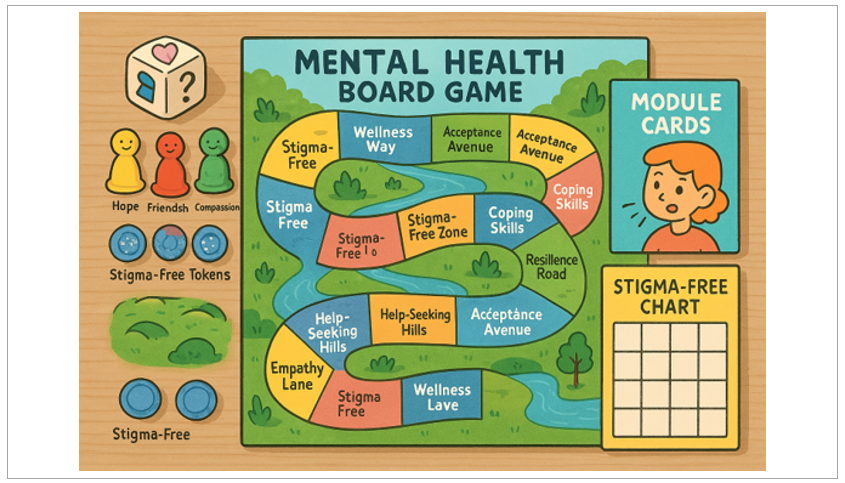
Principal Investigator: Dr. Lameck Luwanda
Project leader/ Coordinator: Dr. Lameck Luwanda
Project Administrator: -
Funding Partner: Predon Limited
Start date: April 1, 2025
End date: June 30, 2026

Effectiveness of SPARKI Board Game in Addressing Mental Health Stigma
The SPARKI Mental Health Board Game Project is a research initiative led by Ifakara Health Institute, aimed at reducing mental health stigma among children aged 10 to 14 years in Ifakara, Tanzania. Funded by Predon Limited, the project's central aim is to explore the effectiveness of the SPARKI board game—a culturally tailored, interactive tool—in transforming children's attitudes and understanding of mental health issues.
Study objectives
The general objective of the project is to determine how effective the SPARKI game is in reducing stigma associated with mental health among primary school children (10-14 years) in Ifakara, Tanzania. The specific objectives are twofold: first, to assess the feasibility and acceptability of using a board game as an educational tool in Tanzanian primary schools; and second, to evaluate its impact on children’s knowledge and attitudes related to mental health.
The project adopts a Community-Based Participatory Research (CBPR) approach, ensuring that the intervention is grounded in the local context and co-developed with educators and mental health professionals.
Why SPARKI in Tanzania?
The need for this project arises from a pressing mental health situation in Tanzania. Globally, 14% of adolescents aged 10–19 are affected by mental health disorders, and 35% of these begin before the age of 14. In Tanzania, stigma, low awareness, cultural misconceptions, and a lack of resources mean that only 1 in 10 children with mental health needs receive appropriate care. Early stigma contributes to a lifetime of marginalization and missed opportunities for help-seeking and support.
SPARKI addresses this gap by offering a fun, engaging, and child-friendly method of learning. It includes eight weekly modules that guide children through understanding mental health, breaking stigma, recognizing challenges, expressing empathy, seeking help, promoting self-care, appreciating the power of language, and building a positive culture. Through gameplay and discussion prompts, children are encouraged to challenge stereotypes and develop supportive attitudes.
The expected outcomes include increased awareness, empathy, and openness among students when discussing mental health, as well as a measurable reduction in stigmatizing attitudes. Additionally, the project seeks to establish whether SPARKI can be scaled up as a national tool for mental health education in schools.
Study timeline
Spanning 14 months (April 2025 - June 2026), the project will be implemented in two phases. The first phase is a pilot conducted at one primary school in Ifakara, involving 30 children. It will test the feasibility and acceptability of the SPARKI game through pre- and post-session surveys and focus group discussions. The second phase involves scaling the intervention to six schools in Ifakara, reaching about 300 students. This phase will assess the game’s effectiveness in reducing stigma and increasing knowledge and empathy, while also collecting feedback on implementation quality and participant engagement.
Study team
The team behind the study comprises researchers, educators, and mental health practitioners working collaboratively to design, test, and refine the intervention. Ifakara scientist Dr. Lameck Luwanda will lead the study and work closely with local partners to ensure the game reflects Tanzanian cultural norms and real-life mental health challenges.
